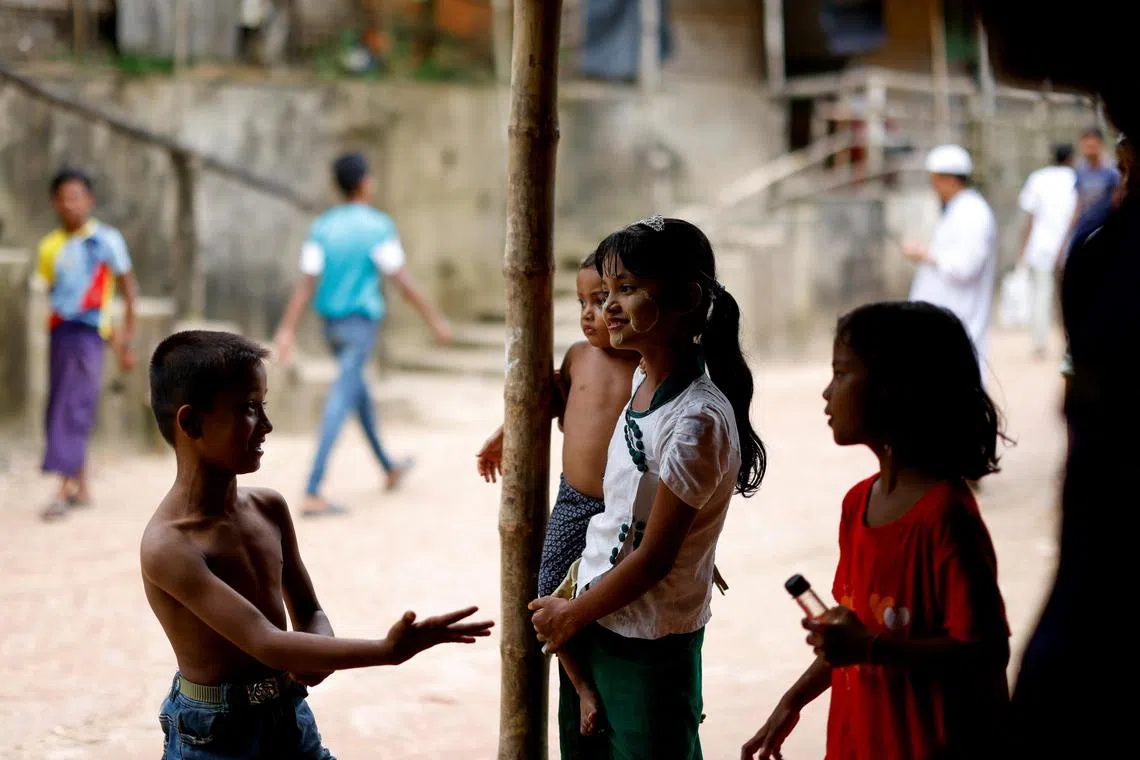Sexual harassment rampant in Bangladesh’s Rohingya camps: Study
Sign up now: Get insights on Asia's fast-moving developments

The study showed that girls aged between six and 15 were particularly vulnerable.
PHOTO: REUTERS
Follow topic:
DHAKA – Sexual harassment remains the most pressing concern for Rohingya women and adolescents living in squalid refugee camps in Bangladesh’s Cox’s Bazar, according to a study released on Aug 31.
Cox’s Bazar is home to around one million largely Muslim Rohingya minority, who fled a brutal military crackdown
ActionAid – one of the largest non-profit organisations operating in the camps since the influx of refugees in 2017 – conducted 66 in-depth interviews, revealing the dire challenges faced by women and adolescents.
“Sexual harassment is the biggest concern,” said Ms Tamazer Ahmed, ActionAid’s policy, research and advocacy manager. “ Early marriage and polygamy
The participants said the violence was meted out not only by men known to their families, but also by members of the Armed Police Battalion (APBN) – a security force deployed by the Bangladesh government.
Ms Ahmed said women in the camps described a shift in the nature of threats over the years, from a lack of basic amenities in the early days to more systemic abuses now. “Now, Rohingya women and adolescents often fall victim to molestation, rape, trafficking, poverty, educational exclusion, and even death,” she added.
Girls aged between six and 15 were particularly vulnerable, with most incidents of sexual harassment occurring near latrines and bathing points. They were also vulnerable at distribution centres, hospitals, schools and madrasahs, border zones, and even within relatives’ homes.
ActionAid executive director Farah Kabir said: “Patriarchy runs deep in the Rohingya community.
“But the views of the Rohingya women, mostly aged 16 to 30 years, were central to the research.”
The women surveyed urged the authorities to improve lighting in public areas, replace APBN officers with army personnel, engage men in prevention efforts, and expand access to education and livelihoods. Trust in law enforcement and religious leaders remained low, with many women saying they had almost nowhere to turn to when facing abuse.
APBN commanding officer Kausar Sikdar, however, said it was not aware of any such allegations against the force.
Bangladesh has recorded a surge of refugees from Myanmar since early 2024, with 150,000 more Rohingya arriving. AFP

